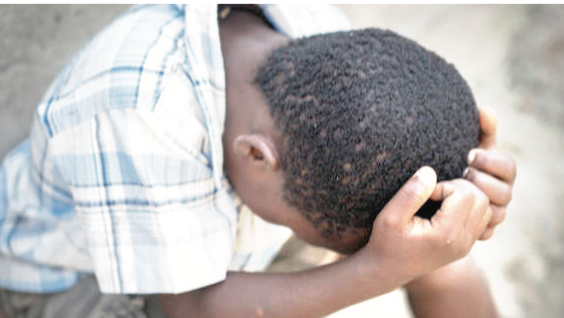Child emotional abuse harmful

Many adults in Kenya argue that they grew in abusive households, yet their parents do not want to acknowledge this. Any discussion around childhood trauma with parents is met with statements like ‘But did you lack anything?’ ‘You are a grown-up now, you deal with it,’ or ‘But si you turned out okay.’
But psychologists argue that children require more than their basic needs being met to be healthy humans. They also say that abuse does not just involve physical abuse, but can also include emotional abuse. So, how does emotional abuse look like in families?
“In a family setup, you are abused if you are abandoned, neglected and disregarded. People can feel abused if they are spoken to disrespectfully even being called ugly names that describe them inappropriately. They also hurt emotionally if their views do not matter to others in the family. They feel unseen. When children’s needs are not responded to like need for information to handle situations competently such as menstrual periods or how to handle others, then they will feel neglected. When individuals suffer emotional abuse they commonly report feeling pain, sadness, restlessness, anxiety and indescribable inner agony,” Catherine Gachutha, a leading psychologist in the country shares.
Emotional abuse is a pattern of behaviour that damages a child’s sense of self-worth and negatively impacts their emotional development. In addition to withholding love and support, the person emotionally abusing the child also may reject, criticise, threaten, demean, and berate the child. They also may humiliate the child, engage in name-calling, and insult them.
Compromised self identity
She further explains that emotional abuse from family shapes these children’s adult lives. They learn that they have to work for affection. These children learn to neglect themselves the same way they are neglected by significant others. They develop low self-esteem and their confidence to make decisions and stand up for themselves is highly compromised. They allow others outside the family to molest them the same way they are molested at home. They believe that their feelings do not matter, and that they do not deserve to be treated right or with respect. They, therefore, become culprits for abuse in their marriages and in association with others. They continually expose themselves to relationships that take advantage of them. They easily become the co-dependent partner in a narcissistic-co-dependent pairing as they have become accustomed to being treated as less than. They are anxiously attached as adults and are willing to do anything to keep love, as they were taught they had to work for love as children rather than being unconditionally loved.
But why would a parent emotionally abuse their children? “Parents will do that unknowingly because they have current or past unresolved emotional issues they are projecting onto their children. These parents may have been parented in the same way and therefore, do what was modelled for them. Some parents use manipulation as a parenting method expecting positive outcomes. This means they lack knowledge and skills of parenting functionally,” Catherine, the author of Effective parenting: Parenting in the 21st Century’further explains.
Building family boundaries
If you were emotionally abused as a child and the abuse has continued to adulthood, you need to raise awareness in your parents and relatives and tell them to respect your feelings. Tell them to stop belittling you, guilt tripping you or emotionally abusing you as a way to manipulate you to do what they want, be it to see them more often or to give them money. While as Africans we have been deeply conditioned to view family as a necessary cog in our lives, you can build boundaries that protect you from your family. Any guilt you feel from protecting yourself is misplaced guilt borne out of years of social conditioning and being expected to be by your family no matter the cost.
Feel free to seek professional help. This will assist you and help pull you out of the helplessness and the hopelessness you might feel as a result of the abuse. Over time, rebuild your self-esteem and start taking full agency over your life.
You might not have gone through the abuse cycle, but might be wondering if you are an abusive parent. Catherine shares that you are emotionally abusive if you say and do mean things to your children and you are not apologetic, if you are abrasive and violent to your children and you justify your actions without remorse, if you punish your children harshly instead of correcting them systematically, then you are without a doubt an emotionally abusive parent, auntie or uncle.
The good news is that you can change by seeking training to be a better parent, healing your emotional wounds from the past, and by attending parenting support groups and seminars.
“Parents need to know that love is the game changer. Hence, when exercising correction not punishment, they need to do so within an environment of care and concern. Apply corrective measures when you are not angry and frustrated with a child and know your child isn’t your enemy. I have written a book on effective parenting and have offered the following methods that I have seen work: help your child master the activities that might be causing you concern so that he/she can master them, give honest, but not brutal feedback regarding areas of concern, give rewards when correct behaviours are learnt, coach on skills and activities, get the child make amends like apologising, remove privileges and give time out among others. Just make sure you do not guilt trip the child or give them silent treatment when they do wrong. They should know they are loved even as they are being corrected,” Catherine says.












